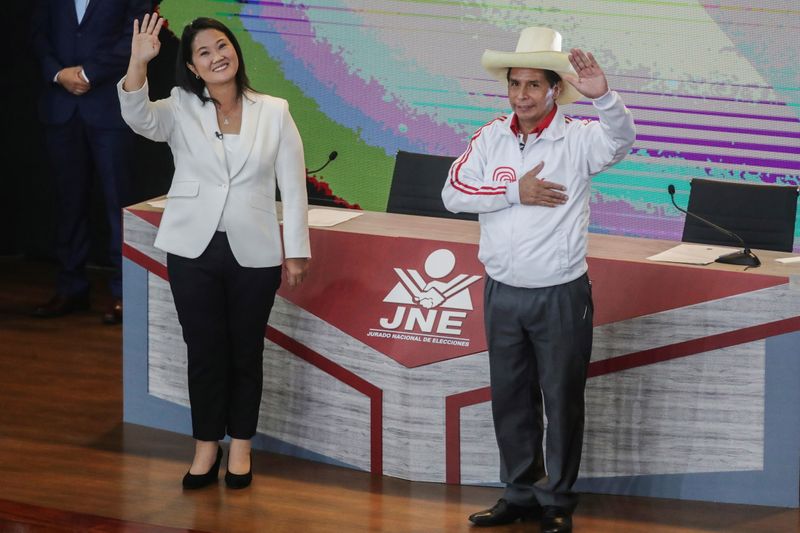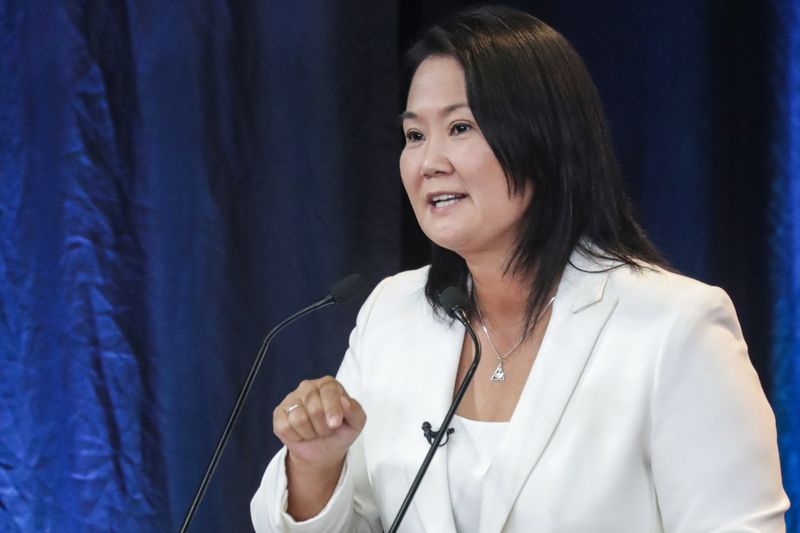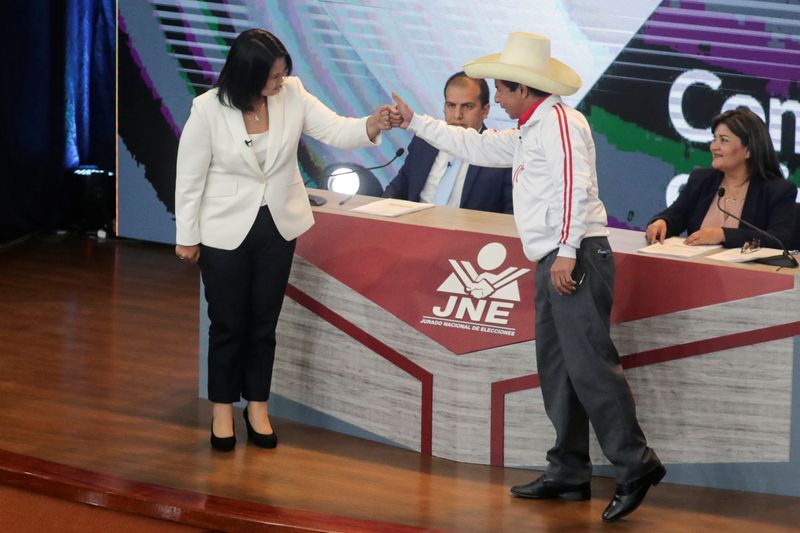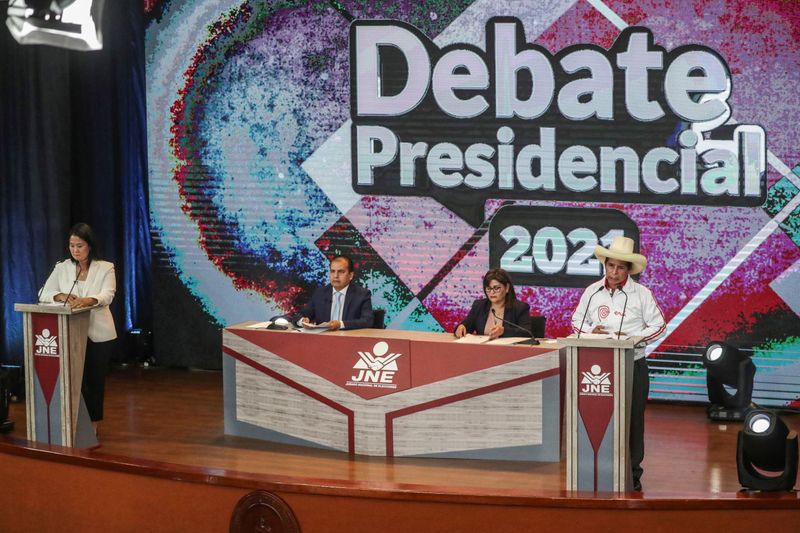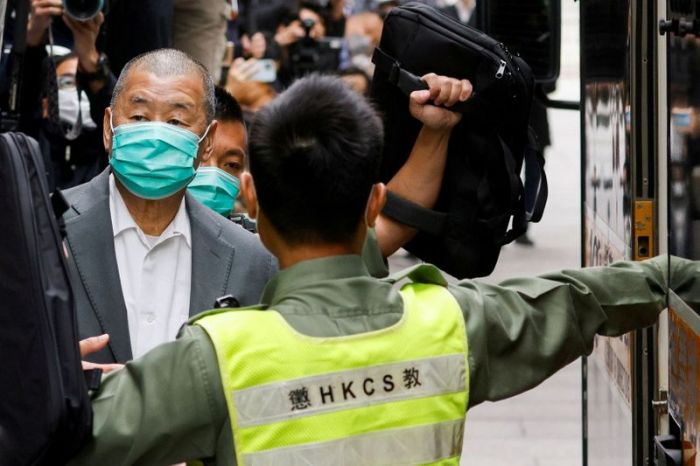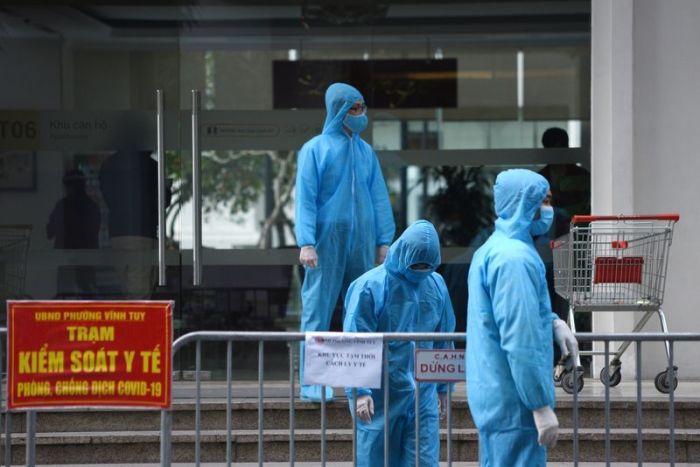LIMA (Reuters) -Peru’s two presidential candidates on Sunday sparred in a debate marked by offers of increased public spending, with right-wing Keiko Fujimori offering cash handouts and bonuses as socialist Pedro Castillo proposed increased universal pensions.
The pair are neck-and-neck in opinion polls just one week ahead of the country’s polarized presidential election on June 6. The ballot could tilt the country, a relative safe haven for investors in Latin America, sharply to the left or see the controversial Fujimori family return to power.
On Sunday, Fujimori, the daughter of jailed former president Alberto Fujimori, unveiled a proposal to seek more contributions from the country’s mining companies. Castillo, an elementary school teacher, has previously proposed raising taxes on miners.
Mining is a key source of revenue and economic stability for Peru, whose public finances remain strong but have been hit by the COVID-19 pandemic, with rising public debt and fiscal deficits.
A poll from Ipsos Peru on Sunday showed the two candidates within 2 percentage points of each other, and the gap between them narrowing versus the pollster’s previous survey.
The poll showed Castillo’s support rising 2 points to 42% of the vote. Fujimori, meanwhile, was up 3 points to 40% of the vote, with undecided voters making up 18% of those surveyed, down from 23% in the previous poll.
The survey was carried out on May 28 and included 1,526 people, with a margin of error of 2.51%.
Another poll released on Sunday, by the Peruvian Studies Institute (IEP), showed the share of those intending to vote for Castillo dropped to 40.3%, from a previous 44.8%, while support for Fujimori advanced to 38.3% from 34.4%.
As the election race has heated up, supporters of each of the pair have taken to the streets to back their candidate.
Thousands of Fujimori supporters marched through Lima on Saturday night to reject what they called Castillo’s “communism”, while last week another march saw people protest against Fujimori and corruption.
(Reporting by Marco Aquino; Editing by Adam Jourdan, Chizu Nomiyama and Kenneth Maxwell)

